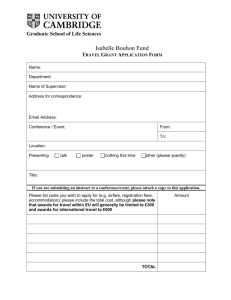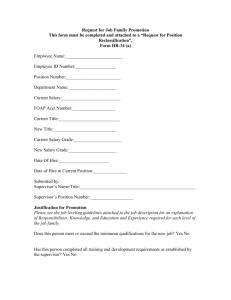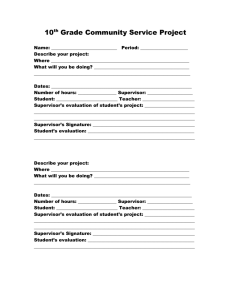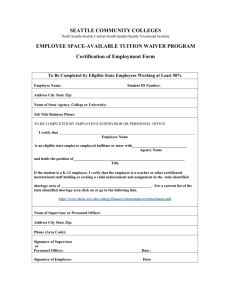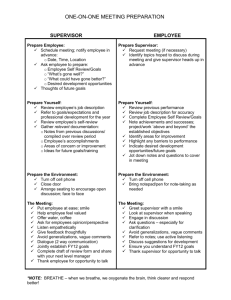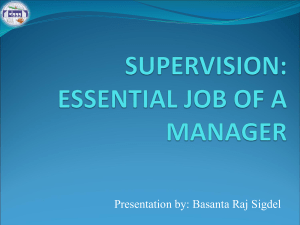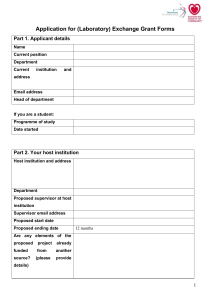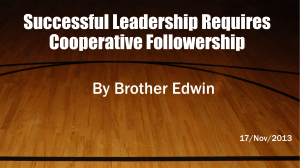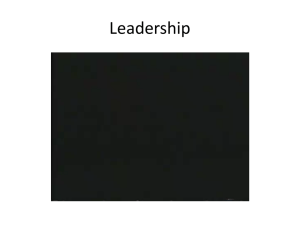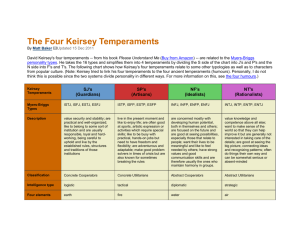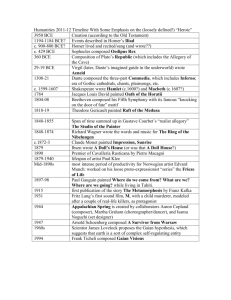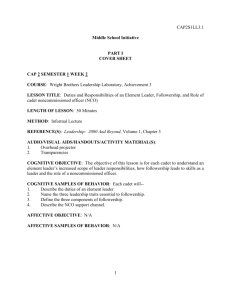Reflective Essay #5 - Samuel Morse Productions
advertisement
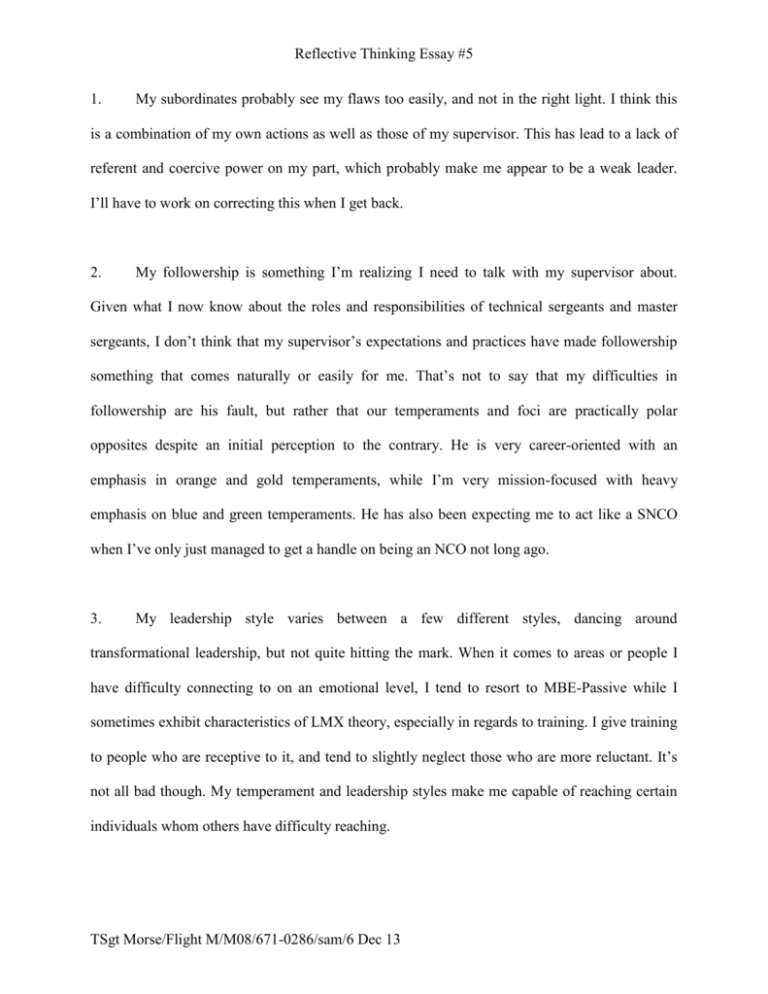
Reflective Thinking Essay #5 1. My subordinates probably see my flaws too easily, and not in the right light. I think this is a combination of my own actions as well as those of my supervisor. This has lead to a lack of referent and coercive power on my part, which probably make me appear to be a weak leader. I’ll have to work on correcting this when I get back. 2. My followership is something I’m realizing I need to talk with my supervisor about. Given what I now know about the roles and responsibilities of technical sergeants and master sergeants, I don’t think that my supervisor’s expectations and practices have made followership something that comes naturally or easily for me. That’s not to say that my difficulties in followership are his fault, but rather that our temperaments and foci are practically polar opposites despite an initial perception to the contrary. He is very career-oriented with an emphasis in orange and gold temperaments, while I’m very mission-focused with heavy emphasis on blue and green temperaments. He has also been expecting me to act like a SNCO when I’ve only just managed to get a handle on being an NCO not long ago. 3. My leadership style varies between a few different styles, dancing around transformational leadership, but not quite hitting the mark. When it comes to areas or people I have difficulty connecting to on an emotional level, I tend to resort to MBE-Passive while I sometimes exhibit characteristics of LMX theory, especially in regards to training. I give training to people who are receptive to it, and tend to slightly neglect those who are more reluctant. It’s not all bad though. My temperament and leadership styles make me capable of reaching certain individuals whom others have difficulty reaching. TSgt Morse/Flight M/M08/671-0286/sam/6 Dec 13 4. In my career field, there are two types of NCOs who are motivated to excel. There are career-oriented NCOs whose goal is to make rank and advance through the leadership levels. Others choose to be technical experts with unparalleled photographic and writing capability. Of these types, I’m the latter. My aspirations in the Air Force right now revolve around getting a high-level photojournalist position at an organization like Airman magazine, and I need to continue pushing my technical ability to achieve that goal. 5. My supervisor’s description of me as an NCO would be similar to his description of me as a supervisor. While he does not agree with my decision to be a technical expert first, and has told me to accept the consequences of my actions, he supports my personal desires as long as they do not conflict with the needs of the unit (although to him, they often do). 6. I identified a few strengths during this course. My ability to write and communicate ideas is stronger than I anticipated. The difference between ALS and NCOA is night and day, although not unexpected given the almost six years of public affairs experience I’ve gained in that time. I learned that I am in my element in a team when I am an advancer or refiner. It explains my lack of decisiveness as well. 7. My essence is audio-visual artistry and problem solving. I love challenges and springboard off of limitations. I can even become measurably depressed if I go for too long without creating, designing, or composing something, and conversely, it can be my greatest source of strength and motivation when I do. 2
